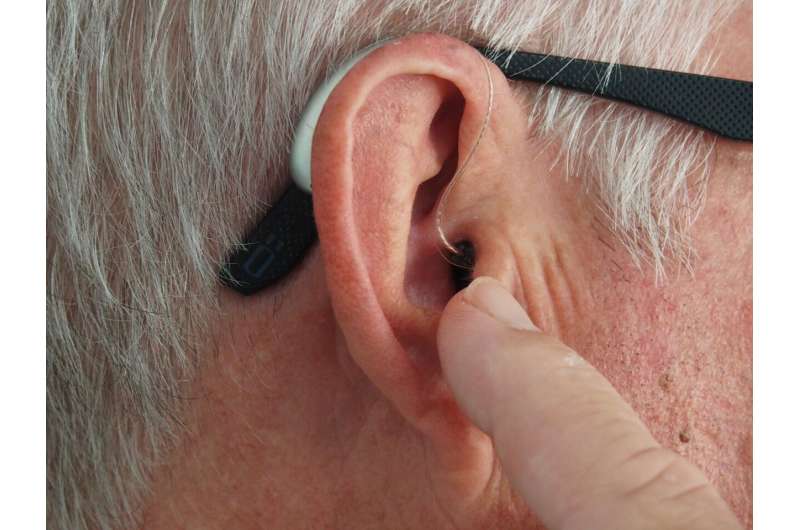This article has been reviewed according to Science X's editorial process and policies. Editors have highlighted the following attributes while ensuring the content's credibility:
fact-checked
peer-reviewed publication
trusted source
proofread
Sudden hearing loss study: High-dose therapy does not lead to better outcomes than the standard treatment

In the case of sudden hearing loss, high-dose therapy with common medications is not more effective than standard treatment but is associated with a higher risk of side effects. This is the main result of a large-scale Germany-wide randomized controlled trial with more than 300 patients led by the University Medicine Halle.
The results, published in the journal NEJM Evidence, also raise doubts about the efficacy of the standard treatment itself. According to conservative estimates, several hundred thousand people around the world suffer from sudden hearing loss each year.
Sudden hearing loss is often treated with anti-inflammatory drugs, so-called glucocorticoids, which are similar to cortisone.
"There have been assumptions that a very high systemic dose of glucocorticoids administered over a short period of time has a superior effect compared to the standard treatment. We systematically investigated and compared the effects of different treatment strategies in the largest clinical trial with systemic glucocorticoids so far," explains Professor Stefan Plontke, coordinating investigator of the trial and director of the Department of Otorhinolaryngology, Head and Neck Surgery at University Medicine Halle.
As part of the trial, 325 patients from 39 sites across Germany were randomly assigned to three treatment groups. One group received the standard treatment, while the other two groups received a significantly higher dose of either the same drug or a similar substance. The team then looked at the extent of hearing improvement after 30 days and which side effects occurred.
"A higher dose of glucocorticoids did not result in better outcomes compared to the standard therapy. However, adverse events occurred more frequently. These included elevated blood sugar levels or a rise in blood pressure in patients with pre-existing high blood pressure," says Plontke.
"Despite immediate treatment with glucocorticoids, symptoms persisted in the majority of patients in all groups. Even in the group with the standard therapy, which had the best results after 30 days, 60 percent of the patients had not fully recovered."
Although these drugs have been used for 50 years as the worldwide standard of care for sudden hearing loss, their value in the treatment of idiopathic sudden sensorineural hearing loss remains unclear. "Whether treatment with glucocorticoids is more effective, equal to or even less effective than a placebo, needs to be investigated in a follow-up trial," explains Plontke. According to the specialist, there is an increasing need for new drug treatment options for sudden hearing loss.
More information: Stefan K. Plontke et al, High-Dose Glucocorticoids for the Treatment of Sudden Hearing Loss, NEJM Evidence (2023). DOI: 10.1056/EVIDoa2300172

















